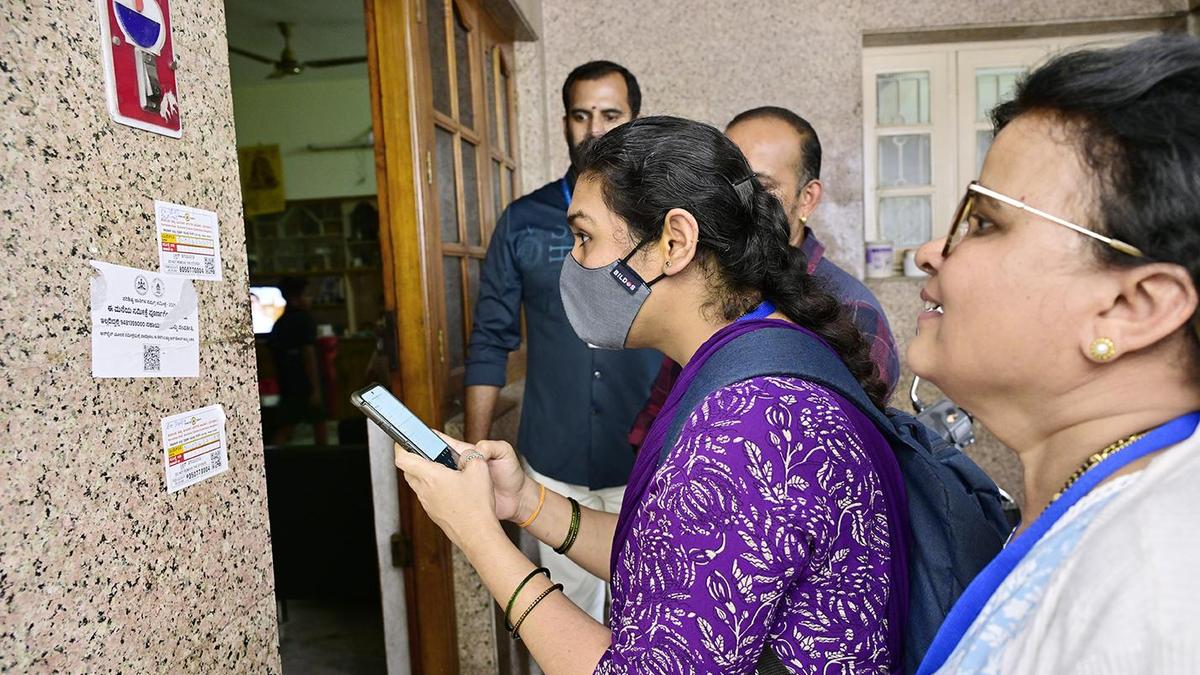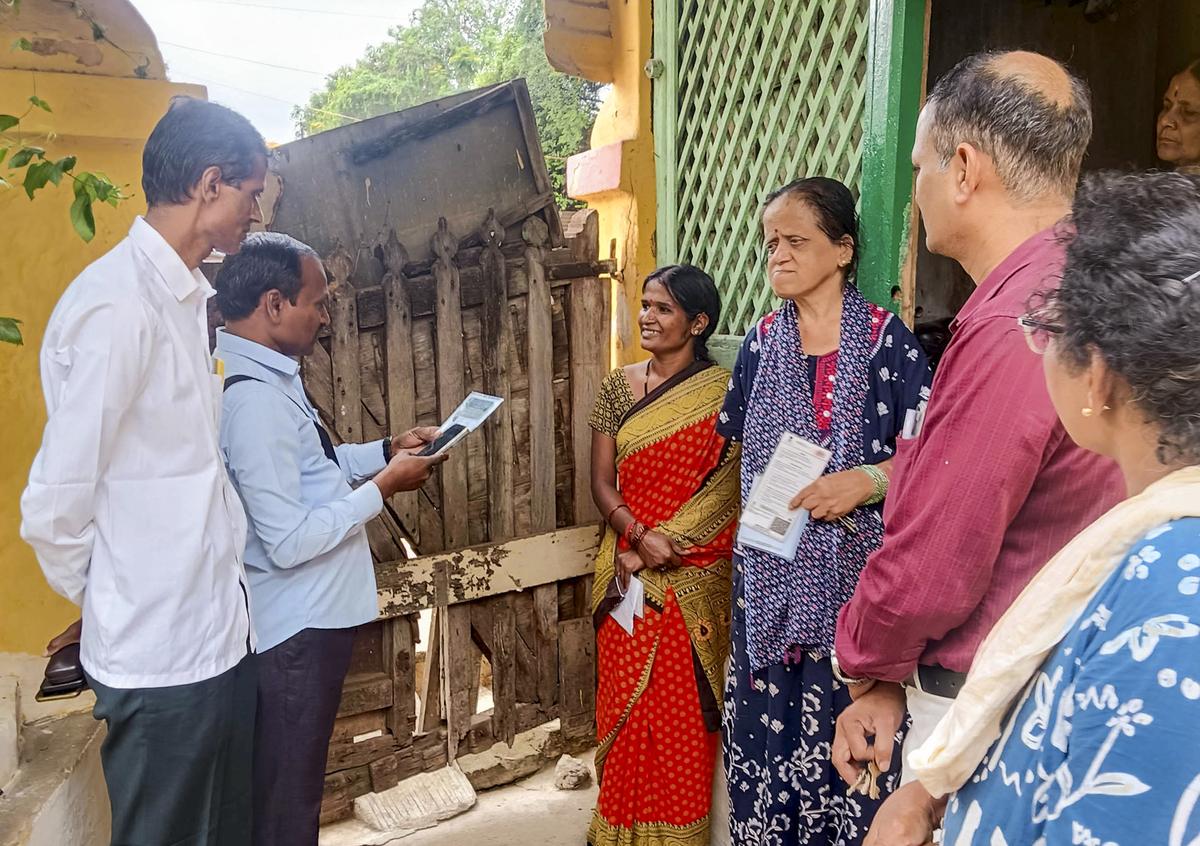Bengaluru is once again preparing to witness a significant stride in governance and social research, as the Karnataka Social and Educational Survey gears up to resume. After months of planning and pilot studies, authorities have emphasized the survey’s critical role in understanding demographic patterns, educational access, and socio-economic disparities. Stakeholders, from policymakers to local communities, are closely monitoring the survey’s progress, particularly in the state capital, where rapid urbanization and population growth present both opportunities and challenges for accurate data collection. Expectations are high that the survey will inform future development strategies.
Experts in urban development and social policy have highlighted the survey’s potential to transform Bengaluru’s governance approach. Dr. Rekha Shetty, an urban planner, emphasized that “comprehensive, data-driven insights allow authorities to anticipate challenges rather than merely react to them.” She added that surveys like this are essential in rapidly growing cities, where migration patterns and informal settlements can complicate planning. Experts argue that understanding household demographics, employment trends, and educational attainment is crucial for long-term urban sustainability, ensuring that policy decisions are grounded in real-world evidence rather than assumptions.
Local community leaders have also expressed optimism about the survey. Ward representatives and resident welfare associations believe that accurate data will empower communities to voice their concerns more effectively. By participating in the survey and providing reliable information, residents hope to influence policies related to public services, school facilities, and infrastructure upgrades. Several community organizations have launched awareness campaigns to encourage participation, emphasizing that each household’s input can directly affect resource allocation and development priorities in their neighborhoods.
Education sector professionals are closely watching the survey, particularly its implications for policy reforms. School principals and teachers anticipate that the findings will reveal gaps in teacher distribution, classroom resources, and student enrollment rates. Such data can guide targeted interventions, such as deploying additional educators to underserved schools, introducing supplementary learning programs, and improving infrastructure in government schools. Experts stress that sustained improvements in education require evidence-based planning, and the survey provides a foundational step toward bridging the gap between policy intent and ground realities.
Policy analysts have also noted the survey’s role in shaping economic strategies. Bengaluru’s labor market is dynamic, influenced by technology, startups, and the informal sector. Accurate insights into employment patterns, income levels, and skill gaps are vital for designing training programs and welfare initiatives. Analysts believe that survey data can support targeted interventions for marginalized workers, including migrants and daily-wage earners, ensuring equitable access to opportunities. Such interventions, they argue, can promote inclusive growth and mitigate widening socio-economic disparities in the city.
Health experts view the survey as a timely tool to address public health challenges. With data on sanitation access, water supply, and healthcare availability, authorities can plan interventions that improve overall community well-being. Experts stress the importance of addressing disparities between neighborhoods, particularly in low-income areas where access to medical facilities and hygiene infrastructure is limited. The survey’s findings can support both preventive measures and long-term public health planning, contributing to improved quality of life for Bengaluru’s diverse population.
Environmental specialists also underscore the survey’s potential to guide sustainable urban planning. By documenting environmental indicators such as green cover, air quality, and water usage, the survey enables policymakers to balance urban expansion with ecological considerations. Experts argue that sustainable city development requires integrating social, economic, and environmental data, making the survey a key tool for future planning. With Bengaluru facing pressures from rapid construction and population growth, such insights are critical for maintaining livability and environmental health in the city.
In summary, the Karnataka Social and Educational Survey is more than a data collection exercise—it represents a convergence of community engagement, expert analysis, and government planning. Stakeholders across sectors recognize its potential to shape educational reforms, social welfare policies, economic strategies, and urban development. By integrating technological tools, fostering transparency, and encouraging citizen participation, the survey promises a holistic understanding of Bengaluru’s social fabric. As data analysis begins, expectations are high that this initiative will guide informed, equitable, and sustainable policymaking for the city’s future.
The resumption follows a period of delay caused by administrative hurdles and pandemic-related interruptions. Officials have highlighted that the Bengaluru region, with its complex mix of urban neighborhoods, rural outskirts, and rapidly expanding peri-urban areas, requires meticulous data collection to ensure the survey’s findings reflect ground realities. The government has also focused on integrating technology in data gathering, employing digital tools to reduce errors, improve efficiency, and streamline reporting. By combining traditional enumerator-based methods with mobile and online platforms, the survey aims for higher accuracy and wider coverage.
Data from the survey is expected to play a pivotal role in shaping education policies. Bengaluru, being a hub of educational institutions and IT-driven employment, has unique challenges and opportunities in literacy, school enrollment, and access to higher education. Policymakers hope that insights from the survey will reveal gaps in school infrastructure, teacher availability, and student retention, particularly in low-income areas. Understanding these factors will enable targeted interventions that can reduce educational inequities across the city and improve long-term social outcomes.
Economic disparities remain another focus of the survey. Bengaluru’s urban population includes a wide spectrum of households, from affluent tech professionals to daily-wage workers and migrants. Social surveys historically highlight these income gaps, employment patterns, and occupational shifts, which help authorities design welfare schemes, skill development programs, and employment opportunities. Accurate data from the ongoing survey will allow for better resource allocation, enabling government programs to reach marginalized groups effectively and address systemic inequalities.

TECHNOLOGICAL TOOLS AND COMMUNITY INVOLVEMENT
To enhance the survey’s accuracy, Karnataka authorities are employing an array of technological tools, ranging from GPS-enabled mobile applications to real-time reporting dashboards. Enumerators are trained to capture data digitally, reducing paperwork and allowing for quicker validation of responses. Community involvement is also being emphasized, with local residents encouraged to cooperate and provide precise information. By involving community leaders, the survey team hopes to build trust, minimize reporting bias, and ensure that the collected data reflects the true socio-economic landscape of Bengaluru.
Education experts and urban planners have been actively engaged in discussions regarding survey methodologies. Their recommendations include stratified sampling across wards, consideration of seasonal migration, and careful documentation of informal settlements. These measures aim to prevent skewed results and to include voices that are often left out of official statistics. The integration of geospatial mapping and demographic analytics is expected to generate a comprehensive picture of the city’s social fabric, enabling policymakers to make informed decisions that balance urban development with social welfare.
Health and sanitation metrics are also a crucial part of the survey. Bengaluru’s rapid growth has created pressures on water supply, waste management, and public health infrastructure. By documenting access to clean water, sanitation facilities, and healthcare services, the survey can highlight gaps in service delivery. This information will be instrumental in planning interventions aimed at improving quality of life, especially in densely populated low-income neighborhoods, where the need for targeted healthcare initiatives is greatest.
The role of local governance bodies in facilitating the survey cannot be overstated. Municipal officials, ward representatives, and local NGOs are being engaged to ensure smooth field operations. Coordination with these stakeholders is critical in areas with complex demographic compositions or restricted accessibility. By working together, survey teams can overcome logistical hurdles and capture data that accurately reflects both the diversity and challenges of urban life in Bengaluru.
Social welfare organizations are closely monitoring the survey’s progress, anticipating that its findings will guide future interventions. With data on income levels, education, employment, and living conditions, these organizations can better align their programs with the needs of the population. Additionally, survey results are expected to influence government policies on poverty alleviation, skill development, and social equity, creating a framework for long-term improvements in Bengaluru’s social landscape.
CHALLENGES AND EXPECTATIONS
Despite meticulous planning, several challenges remain for the Bengaluru survey. Population mobility, informal settlements, and varying literacy levels can complicate data collection. Enumerators must navigate language barriers, skepticism from respondents, and inconsistent documentation in households. Training programs have been intensified to equip field staff with problem-solving strategies and cultural sensitivity, ensuring that these obstacles do not compromise the quality of collected data. Authorities emphasize that accurate, comprehensive, and timely data is the cornerstone of actionable policies.
Transparency in survey methodology has been a topic of discussion among civil society groups. By publicly sharing information on sampling techniques, question formats, and data validation processes, the government aims to build credibility and trust in the survey’s findings. This transparency is particularly crucial in Bengaluru, where diverse communities may be wary of government surveys due to past misreporting or administrative errors. Ensuring openness in operations will also encourage higher participation rates, improving both the quality and representativeness of data.
Economic recovery post-pandemic adds another layer of urgency to the survey. Bengaluru’s labor market has been reshaped by technological advancements, shifting industries, and a rising gig economy. Capturing employment patterns, wage levels, and workforce skills is vital for crafting policies that stimulate economic growth while supporting vulnerable workers. Survey findings will provide a roadmap for investment in vocational training, education, and social welfare schemes that align with the city’s evolving economic landscape.
The survey’s educational component is also expected to influence policy debates at the state level. Results highlighting gaps in student access, teacher availability, and infrastructure can guide budget allocations and reforms in both urban and rural schools. This is particularly important for Bengaluru, where the contrast between elite institutions and underfunded schools is stark. By analyzing these disparities, authorities can implement targeted strategies to ensure that all children have access to quality education, reducing long-term social and economic inequalities.
Housing and urban planning are additional areas that will benefit from survey insights. Bengaluru has seen rapid real estate development, but not always with inclusive planning. Documenting living conditions, household sizes, and migration patterns will help planners design housing policies that address affordability, safety, and accessibility. The survey will also inform infrastructure projects such as roads, public transport, and sanitation networks, ensuring that growth is sustainable and equitable.
Public opinion about the survey remains largely positive, with residents hopeful that it will lead to meaningful change. Many citizens view the initiative as a step toward more accountable governance, improved services, and equitable development. Educational institutions, community groups, and local leaders have expressed support, emphasizing that active citizen participation can strengthen democratic processes and reinforce social cohesion.
Environmental data is another key component of the survey. Bengaluru faces challenges related to green space preservation, air quality, and water management. By including environmental metrics, the survey provides a holistic view of urban living conditions. These insights can inform policies that balance urban expansion with ecological sustainability, ensuring that Bengaluru’s growth does not come at the cost of environmental degradation.
Once data collection concludes, analysis and reporting will be closely scrutinized by government officials, policymakers, and civil society. Timely publication of findings is essential to maintain momentum and ensure that recommendations translate into actionable policies. Analysts expect that comprehensive data will reveal not only areas of concern but also success stories, guiding evidence-based interventions and promoting best practices across different sectors.

In conclusion, the resumption of the Karnataka Social and Educational Survey in Bengaluru represents a critical opportunity to deepen understanding of the city’s social and economic fabric. With careful planning, technological integration, and active community engagement, authorities aim to generate accurate and actionable insights. The findings will influence educational reforms, economic policies, social welfare programs, and urban planning, ultimately contributing to more equitable and sustainable development in one of India’s fastest-growing metropolitan regions.
Follow: Karnataka Government
Also read: Home | Channel 6 Network – Latest News, Breaking Updates: Politics, Business, Tech & More

